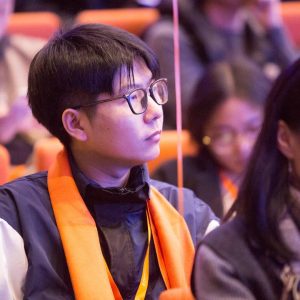More than 5,300 high school and college students took part in the online National Cyber League competition from April 3-5. Only 17 scored higher than Syracuse University’s own Keyi “Kevin” Li, a student-employee at the ITS Security Operation Center (SOC) who is pursuing a graduate degree in the College of Engineering and Computer Science. Li scored 2,720 points out of 3,000 possible with a 96.1% completion rating.
The National Cyber League tests students’ cybersecurity skills and know-how with a variety of challenges related to forensic data, ransomware attacks and more. Li shared a little about his experience and how his work at the SOC contributed to his remarkable performance.

How did you hear about the National Cyber League? Why were you interested?
I heard about it from one of my colleagues at the SOC. I thought it would be a great competition, so I participated. I have always been passionate about cybersecurity-related competitions because I can learn a lot and have fun doing it.
How long have you worked at the SOC? How do you think that experience helped you in the National Cyber League competition?
I have been working at the SOC for six months. Our work includes analyzing suspicious logs, in-depth analysis and investigating software security issues. The NCL is very practical, so some of the techniques and analytical ideas I used in the SOC applied in the competition challenges.
What was your favorite challenge? How many points/flags did you get?
My favorite challenge was one of the “Exploitation” challenges. It required us to analyze a bot malware and find a security vulnerability to counter against the remote C2 server, which means you need to reverse the malware program. We also had to analyze the assembly code to figure out the entire logic. In addition, there was a tricky part added to the program on purpose, so when I solved it, I felt it was very interesting.
What are your career goals and how do you think your experiences with the SOC and National Cyber League will help?
My career goals focus on the security field, and I hope I can become an excellent security engineer to fight against the “bad guys” hidden in the network. My experience with the SOC and the NCL will be very helpful. Those kinds of hands-on security experiences and security solutions will lay a solid foundation for my career.
